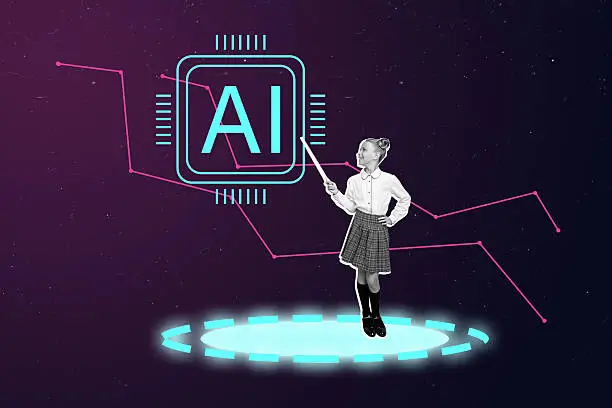The world of education is undergoing a massive transformation. With the rapid rise of artificial intelligence, both teachers and students are experiencing smarter, more efficient, and more personalized ways to teach and learn.
From automated grading systems to AI tutors, virtual classrooms, and predictive learning analytics, 2025 is the year where AI tools are no longer optional, they’re essential.
This article explores how AI is reshaping education, the top tools empowering teachers and students, and how these technologies are driving a new era of EdTech innovation.
How AI Is Revolutionizing the Classroom
AI is doing far more than automating tasks, it’s creating adaptive, data-driven educational environments.
Key Transformations:
- Personalized Learning: AI tailors lessons to each student’s pace, strengths, and weaknesses.
- Administrative Efficiency: Teachers automate grading, attendance, and reporting.
- Accessible Education: AI tools enable remote, multilingual, and inclusive learning.
- Data Driven Decisions: Predictive analytics help educators identify learning gaps early.
- Enhanced Engagement: Gamified AI platforms increase student motivation and retention.
Top AI Tools for Teachers in 2025
Teachers are benefiting from AI through productivity boosters and teaching aids that reduce manual work and enhance creativity.
1. AI Lesson Planners
Tools like MagicSchool.ai, Khanmigo, and ChatGPT-based plugins help teachers design lesson plans in minutes—aligned with curriculum standards and tailored to student levels.
2. Automated Grading & Feedback Systems
Platforms like Gradescope and Turnitin’s AI grader speed up grading for assignments and provide real-time feedback, freeing up teacher time for personalized instruction.
3. Intelligent Teaching Assistants
AI chatbots act as co-teachers, answering student FAQs, sharing resources, and helping with classroom management—especially in large or online classes.
4. Scheduling & Task Automation Tools
AI powered school management systems automate attendance, scheduling, and parent communication, improving classroom efficiency.
Top AI Tools for Students in 2025
For students, AI tools offer personalized support, 24/7 learning help, and interactive education experiences that boost performance.
1. AI Tutors & Homework Assistants
Apps like Socratic, Khan Academy’s AI Tutor, and Duolingo Max provide instant explanations, step-by-step solutions, and adaptive exercises based on student progress.
2. Language Learning AI
AI-driven platforms can translate, explain grammar, and even simulate real-life conversations, making language acquisition faster and more interactive.
3. Accessibility Tools
For students with special needs, AI speech-to-text, text-to-speech, and cognitive support tools enable inclusive education, breaking barriers in traditional classrooms.
4. Personalized Learning Dashboards
AI dashboards track progress and recommend new lessons, helping students take control of their learning journeys.
Benefits of AI Integration in Education
For Teachers:
- Reduced administrative burden
- Better student data insights
- More time for creative & critical teaching
- Real-time performance tracking
For Students:
- Personalized, self-paced learning
- Immediate feedback & support
- Increased motivation through gamification
- Access to quality education regardless of location
Challenges & Ethical Considerations
While AI offers immense opportunities, responsible integration is crucial.
- Data Privacy → Protecting student data is essential as platforms collect sensitive information.
- Equity & Access → Schools must ensure all students benefit equally, avoiding digital divides.
- Teacher Training → Educators need training to use AI effectively without over-reliance.
- Overdependence → Balancing AI support with human interaction remains key for social and emotional learning.
The Future of AI in Education
Looking ahead, AI is expected to:
- Integrate multimodal learning (text, voice, VR) seamlessly.
- Predict learning outcomes and suggest personalized paths.
- Enhance collaboration between teachers and intelligent systems.
- Support lifelong learning beyond traditional classrooms.
FAQs About AI Tools in Education
Q1. Are AI tools replacing teachers?
No. AI supports teachers by handling repetitive tasks and offering insights, allowing educators to focus on human interaction and creativity.
Q2. Can students cheat using AI?
While misuse is possible, many platforms now include AI plagiarism detection and ethical usage guidelines to prevent cheating.
Q3. Are AI tools expensive for schools?
Many tools offer free or affordable versions, and governments are increasingly funding EdTech adoption in public schools.
Q4. How is student data protected?
Reputable platforms comply with global privacy regulations (like GDPR and FERPA) and use encryption to protect data.
Q5. Which subjects benefit the most from AI tools?
STEM, languages, and writing intensive subjects have seen the biggest impact, but AI is expanding into arts and vocational education too.







